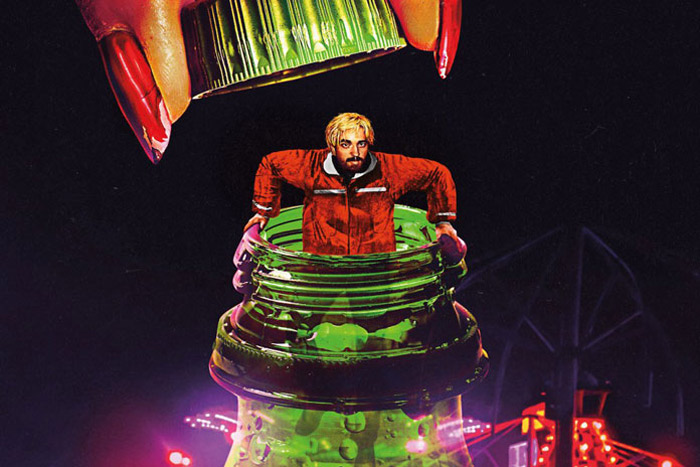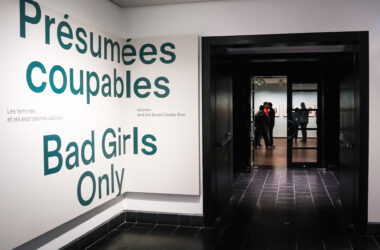Leo Stillinger: At the beginning of the Safdie brothers’ (Daddy Longlegs (2009), Heaven Knows What (2014)) new feature-length film Good Time, two brothers have just robbed a bank. One asks the other: “Are you feelin’ this?” Good Time is not a good movie, but perhaps it can be justified in terms of this question.
Jordan Foy: “I don’t know what to tell you,” Robert Pattinson’s character Connie says at one point in the film, and I think this encapsulates exactly how I feel about it. I just don’t know. It was all over the place. There were things I appreciated, and things that drove me crazy.
LS: I’m feeling that high adrenaline confusion as well. Thanks to the convulsive soundtrack and claustrophobic cinematography, the unrelenting intensity quickly becomes too much. I spent most of the film feeling more exhausted than entertained. The film’s most memorable scene takes place in a darkly lit funhouse, where Connie finds a Sprite bottle filled with LSD. The scene can be taken as a metaphor for the movie itself—a bad trip.
JF: Bad trip indeed—this film significantly heightened my anxiety. For one thing, almost every shot is a close up on somebody’s face. And the soundtrack, produced by electronic artist Oneohtrix Point Never, is jarring and unfitting at times. These two factors—along with the haphazard and almost improvisational feel of the plot— resulted in a seriously unsettling viewing experience.
LS: Disorienting as it was, though, the style of the film is distinctive enough to hold it together as a work of art. Unfortunately, its protagonist is an unsympathetic plank. As Connie, Robert Pattinson is not much more expressive than he was as Edward in the Twilight series (2008-2012). Yet the camera remains glued to his face, which often fills the entire screen, perhaps in the futile hope that he will show any emotion. Pattinson himself described the film as a “really hardcore kind of Queens, New York, mentally-damaged psychopath, bank robbery movie.” It would be hard to argue with any of that; it’s just a shame that the mentally damaged psychopath wasn’t made to be more interesting.
JF: Not going to disagree with Rob on that one. Connie is a grade A, sociopathic piece of shit. His goal in the film is to free his mentally handicapped brother from police custody, but at various points in the movie he recklessly endangers him, and spends most of the film ruthlessly manipulating people. Perhaps Connie was intended to be a morally grey character, but I had extreme difficulty sympathizing with him. I really didn’t like him.
LS: What makes the film more of a shame is that there is an interesting, sympathetic character, in the form of Connie’s brother Nick (Ben Safdie), whose mental turmoil and relationship with his grandmother seemed to promise a much more emotionally-complicated plot arc. Yet, Nick spends the majority of the film off-screen in a psychiatric hospital, and viewers are left with his soul-dead brother instead. The final scene, which depicts Nick participating in group exercise at the psychiatric hospital, is genuinely bittersweet. Moreover, it gives a glimpse into what this film could have been if taken in a different, more sensitive direction.
JF: The film has its moments though. There were some scenes that made me laugh, and there were times when I felt like maybe I was liking the movie. But ultimately the experience was too intense. There’s an audience for a film such as this, and maybe I would enjoy it a second time through, but I certainly did not have a ‘good time’ on my first watch.









